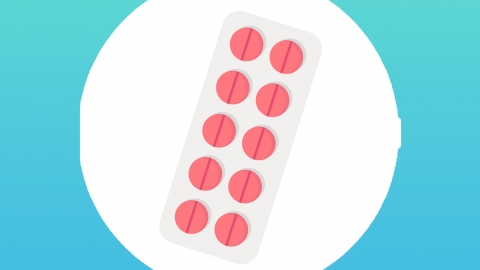Can melatonin treat insomnia, and does it have side effects?
Generally, melatonin can treat insomnia to some extent, but it also has certain side effects. These include drowsiness and dizziness, effects on fertility, gastrointestinal discomfort, headache, and allergic reactions. If any discomfort occurs, prompt medical attention is recommended. A detailed explanation is as follows:

1. Can Melatonin Treat Insomnia?
Melatonin is an amine hormone secreted by the pineal gland in the brain. Its secretion follows a circadian rhythm, typically increasing at night, helping regulate the sleep-wake cycle, inducing natural sleep, and improving sleep quality. For insomnia caused by circadian rhythm disorders due to jet lag, shift work, etc., melatonin supplementation can help adjust the body's biological clock to synchronize with the external environment's day-night rhythm, thereby improving sleep.
2. Side Effects of Melatonin
1. Drowsiness and Dizziness
As a sleep-regulating hormone, melatonin induces the body into a sleep state after administration, causing a sense of drowsiness. If taken during the day or when alertness is required, it may cause excessive drowsiness. Additionally, melatonin may affect the body's balance and nervous system function, causing dizziness and a feeling of instability while walking or standing.
2. Effects on Fertility
Melatonin affects the endocrine system, particularly exerting an inhibitory effect on the gonadal axis. It may interfere with the normal function of the hypothalamic-pituitary-gonadal axis, inhibit gonadotropin secretion, and thus affect the synthesis and release of sex hormones. Long-term use may impact fertility.
3. Gastrointestinal Discomfort
Melatonin may irritate the gastrointestinal mucosa and affect normal gastrointestinal motility and secretion of digestive fluids. Some individuals may experience symptoms such as nausea, vomiting, abdominal pain, and diarrhea after taking it.
4. Headache
Melatonin may affect vascular dilation and constriction functions and neurotransmitter balance, thereby causing headaches. The severity and nature of headaches vary among individuals; they may be mild aching or more severe pulsating pain, typically occurring within a period after taking the medication.
5. Allergic Reactions
Some individuals may be allergic to certain components of melatonin. Allergic reactions occur when the immune system identifies melatonin or its excipients as foreign antigens, triggering an immune response that releases chemicals such as histamine, leading to symptoms like itching, rash, swelling, and even severe allergic reactions including difficulty breathing and throat swelling.
Melatonin can help treat insomnia to some extent, but attention should be paid to its potential side effects. If needed, use it under the guidance of a physician.




